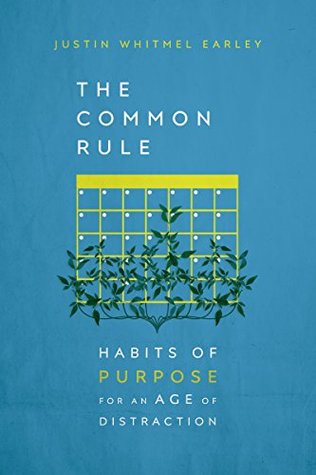More on this book
Community
Kindle Notes & Highlights
Read between
June 9 - June 24, 2020
My head said one thing, that God loves me no matter what I do, but my habits said another, that I’d better keep striving in order to stay loved.
Education is what you learn and know—things you are taught. Formation is what you practice and do—things that are caught. The most important things in life, of course, are caught, not taught, and formation is largely about all the unseen habits.
Notice how similar the definition of liturgy is to the definition of habit. They’re both something repeated over and over, which forms you; the only difference is that a liturgy admits that it’s an act of worship.
But what if the good life doesn’t come from having the ability to do what we want but from having the ability to do what we were made for? What if true freedom comes from choosing the right limitations, not avoiding all limitations?
I had lived my whole life thinking that all limits ruin freedom, when all along it’s been the opposite: the right limits create freedom.
Both were obsessed with taking the small patterns of life and organizing them towards the big goal of life: to love God and neighbor.
All those who want to be attentive to who they are becoming must realize that formation begins with a framework of habits.
Only when your habits are constructed to match your worldview do you become someone who doesn’t just know about God and neighbor but someone who actually loves God and neighbor.
We have a common problem. By ignoring the ways habits shape us, we’ve assimilated to a hidden rule of life: the American rule of life. This rigorous program of habits forms us in all the anxiety, depression, consumerism, injustice, and vanity that are so typical in the contemporary American life.
Each habit also corresponds to two different spectrums. The first spectrum is the love of God and the love of neighbor, with four habits focused on each.
Beginning the day in kneeling prayer is such a keystone habit.
If you wish you had family or friends to eat with but find yourself alone, this could be a hard chapter for you to read. I want you to know that the supper of the Lamb awaits you, and there will be a day all loneliness is gone forever. One of my single friends makes it a habit to eat at the same restaurant counter at least once a week. He’s a regular there and always talks to the servers or others that sit down at the bar. While you may be in pain, consider trying to be a blessing to others by having a regular rhythm of eating somewhere without a phone or headphones—in a way that invites
...more
often referred to now as deep work or flow.
The news is tailored to incite anger and fear for a financial reason: Nothing brings us back for more headlines (and therefore ads) like anger and fear. They get rich, we get mad.
Much of friendship comes from admitting the things that make you seem fragile when spoken out loud.
Vulnerability is risky, and time is limited.
Friendships light up the darkness. For that reason, I think of friendships as little fires we tend.
Silence is the hallmark of the vulnerable. They are vulnerable for many reasons, but this may be the main one: When they call, no one answers.
The fact is that there is a particular sort of “it doesn’t have to be this way” suffering that goes on in dehumanizing material poverty. It’s the way it is because we have made it that way.
In emptying ourselves, we practice becoming like Christ, who emptied himself.
It isn’t on the mountains of triumph and victory but in the valleys of sorrow and loss that he waits for us.
It’s hard to be empathetic in a land where we hide the poor on the other side of the interstate.


